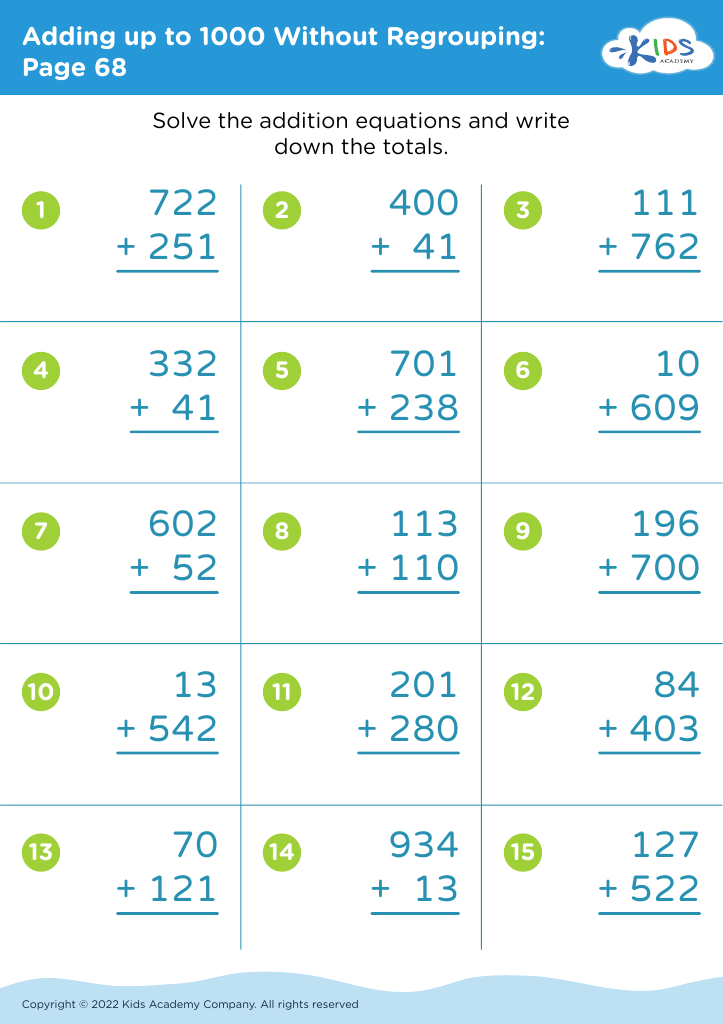Understanding number sequences Addition Worksheets for Ages 6-8
3 filtered results
-
From - To
Boost your child's math skills with our "Understanding Number Sequences Addition Worksheets," designed for ages 6-8. These engaging worksheets introduce young learners to the concept of number sequences while enhancing their addition abilities. Through fun exercises featuring patterns and sequences, children will discover how to identify and complete numerical patterns, strengthening their problem-solving and critical thinking skills. Perfect for both classroom and home use, these worksheets make learning enjoyable and effective. Pair them with our interactive activities for a comprehensive math experience. Start your child's journey towards math confidence today! Explore our worksheets and watch their skills grow!
Understanding number sequences and addition is crucial for children aged 6-8 as it lays the foundation for their mathematical skills. During this developmental stage, children are not only learning to add numbers but also to recognize patterns and develop problem-solving abilities. Number sequences help kids understand the progression of numbers, enabling them to discern patterns and improve their ability to perform mental math.
Parents and teachers play a vital role in this process. By providing engaging activities and supportive environments, they can encourage children to explore numbers and their relationships, fostering a deeper comprehension of mathematical concepts. This is essential for building confidence, as struggling with basic math can lead to anxiety and aversion to the subject.
Moreover, a solid grasp of addition and number sequences impacts future learning, as these skills are essential for more complex math concepts, such as multiplication and fractions, which students will encounter later. Gardens of learning flourish when adults prioritize these foundational skills, ensuring children's success not only in math but in cognitive development and critical thinking skills throughout their academic journey. Therefore, parents and teachers should actively engage children in fun, interactive ways to solidify their understanding of number sequences and addition.




















